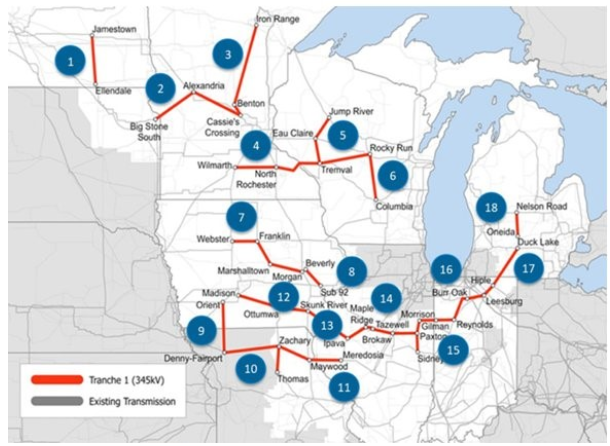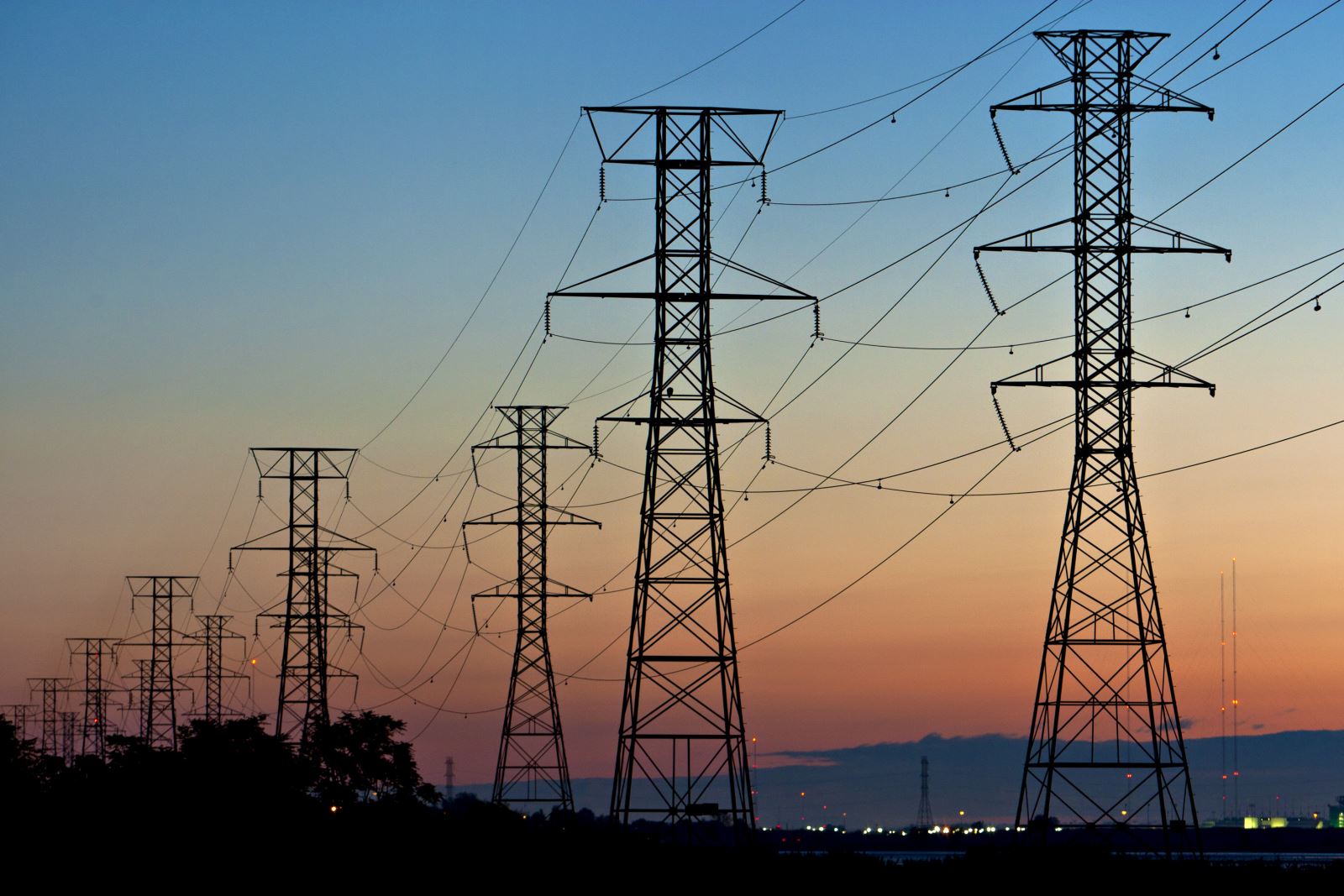Iowa courts have blocked transmission line projects: What's next?
posted
by Cody Smith on Monday, December 18, 2023

Updated 21 February 2024
History & Background
In the waning hours of the 2020 legislative session, the Iowa legislature passed House File (HF) 2643. The large omnibus legislation included a variety of appropriations, shifts in regulatory responsibilities, and policy changes, including the adoption of a right-of-first-refusal provision for high-voltage transmission line projects in the state.
Right-of-First-Refusal (ROFR)
The law added the new ROFR section (478.16) to the Iowa Code, which granted incumbent owners of federally approved transmission lines (for Iowa, that means MidAmerican and ITC Midwest) the exclusive right to construct, own, and maintain the electric transmission lines approved by the Midcontinent Independent System Operator (MISO). In practice, the new law removed the requirement for a competitive bidding process for the rights to build those projects.
MISO is the grid operator for the Midwest region of the U.S and regularly conducts a transmission line planning process that results in the approval of new projects that must then receive state approval. The lines in question are part of a $10.3 billion package of transmission line projects known as Tranche 1 that MISO approved in July of 2022.
Process Leads to Iowa Supreme Court
On Dec. 4, 2023, an Iowa district court declared the ROFR provision originally included in HF 2643 to be unconstitutional, following a lengthy court battle that eventually reached the Iowa Supreme Court. The court also determined that the Iowa Utilities Board’s administrative rule designed to implement the ROFR, Rule 199—11.14, was unconstitutional.
Two transmission line developers, LS Power Midcontinent, LLC and Southwest Transmission, LLC, who are transmission line developers that did not have the ability to bid on the construction of the approved MISO projects due to the new ROFR provision, challenged the ROFR law as unconstitutional. The district court concluded in 2021 that they lacked the proper standing to pursue the case in court. Standing requires plaintiffs to demonstrate that they have been harmed in some way or that their rights have been impeded by law. Because the district court found the plaintiffs lacked standing to bring the case at all, the court did not address whether the law was constitutional.
The question of whether the plaintiffs had proper standing was appealed first to the Iowa Court of Appeals and then to the Iowa Supreme Court. In March of 2023, the Iowa Supreme Court vacated the decisions of the district court and the Iowa Court of Appeals, determining that the litigants had the proper standing they needed to pursue their claim and were likely to win on the merits of their complaint stating they had, “...shown a likelihood of success on the merits.” Consequently, the case was returned to the lower district court to proceed on the merits of the plaintiffs’ claim that the ROFR provision violated the Iowa Constitution’s title and single subject clauses found in Article III, Section 29.
District Court Ruling & Impact
The district court order on December 4, 2023, relying heavily on language from the Iowa Supreme Court’s March 2023 decision, agreed that the ROFR provision violated the title and single subject clauses of the Iowa Constitution. The order also halted any additional action by the Iowa Utilities Board to consider approval of any electric transmission line in Iowa where incumbent transmission owners were granted ROFR. In practice, that would mean all ongoing work on the Tranche 1 projects would stop until further notice. Those affected projects include:
- LRTP-7 (Webster-Franklin-Marshalltown-Morgan Valley);
- LRTP-8 (Beverly-Sub 92);
- LRTP-9 (Orient-Denny-Fairport);
- LRTP-12 (Madison-Ottumwa-Skunk River); and
- LRTP-13 (Skunk River–Ipava)
To begin work on these lines again, the defendants, ITC Midwest and MidAmerican Energy, must appeal the district court’s ruling or MISO must conduct a competitive bidding process for allocating the rights to construct the halted Tranche 1 projects in Iowa. There is currently no indication which path will be chosen, but either approach will undoubtedly lead to project delays.
Update as of February 21st, 2024
The regional grid operator, MISO, recently submitted an amicus brief to the Polk County District Court arguing for a reversal of the the injunction that halted construction activities on the portfolio of transmission lines. MISO argues several points in their filing, including that the court failed to balance the harmful impact of the injunction to all parties with an interest in the outcome of the case, including MISO itself, ITC Midwest, and MidAmerican Energy. MISO also argued that the injunction "impermissibly intrudes" on the exclusive authority of the Federal Energy Regulatory Commission (FERC) under the Federal Power Act to regulate the transmission of electricity in interstate commerce. Among other arguments, MISO also contends that the plaintiffs are obligated to pursue any remedies to resolve the disagreement through FERC, arguing,"...state courts have no role in interpreting, applying and enforcing filed FERC tariffs."
In addition, the Iowa Legislature is currently considering HF 2551 and SF 2372, which would reinstate the right-of-first-refusal in Iowa. Both bills have survived the first legislative funnel deadlines and appear to be on track for passage.
Critical Role of Transmission in Iowa
High-voltage transmission lines serve as the backbone of Iowa’s power grid, helping us be more resilient to extreme weather. When it is blistering hot and we use more electricity to power air conditioners, transmission lines ensure that we can import electricity from other parts of the state and other regions, helping the lights stay on. Additionally, expanding transmission capacity helps lower costs for Iowa customers by reducing congestion on the lines and allowing more low-cost energy to come online to power our homes, farms, and businesses. The importance of transmission upgrades and expansion to the clean energy transition cannot be overstated; as more renewable energy is built, a stronger grid is essential to delivering reliable and cost-effective power to everyone.

- transmission